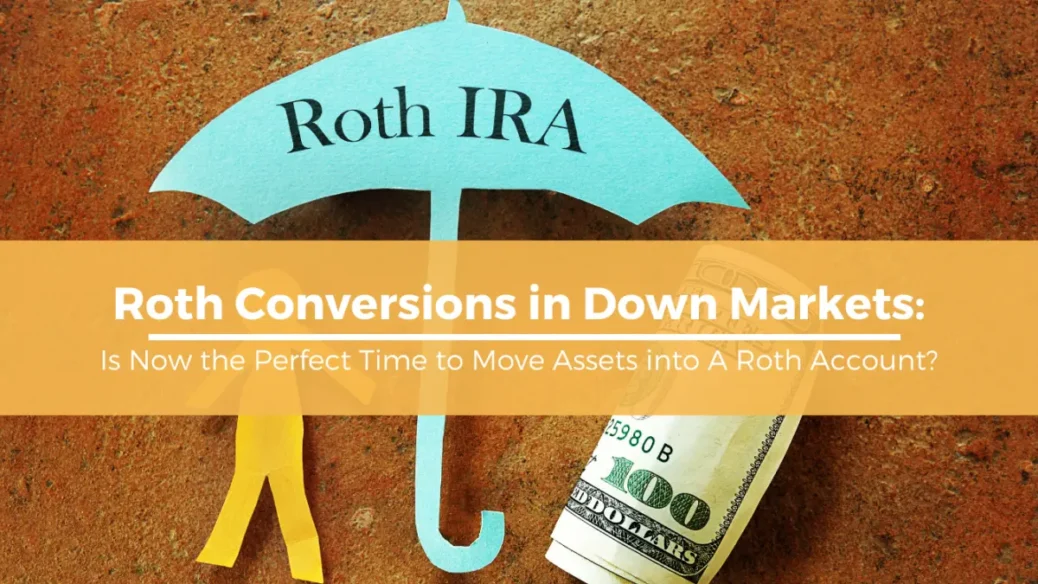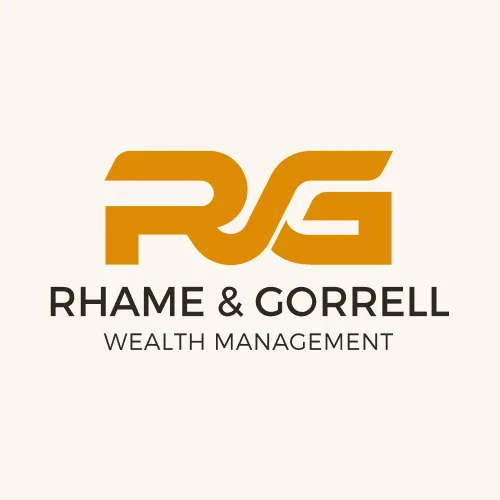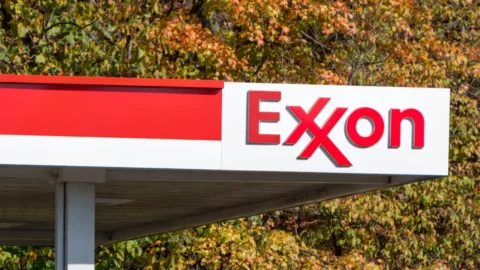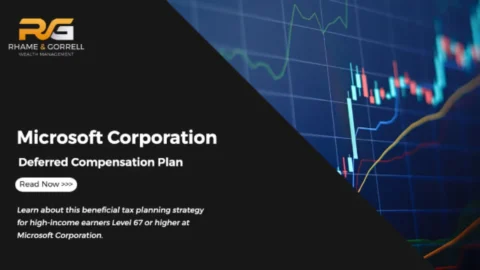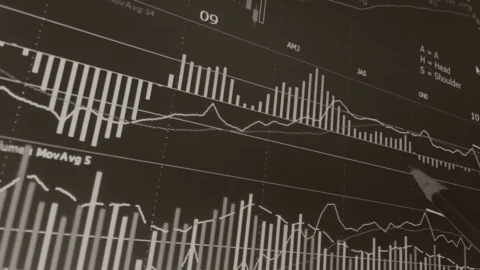Roth Conversions in Down Markets
How The Market Environment Affects Roth Conversions
While no investor would like to see down markets, they are unfortunately an unavoidable part of the market cycle. In periods of prolonged down markets, it is easy to focus on your declining portfolio balance rather than seeking opportunities in other areas of your encompassing financial plan. A weak market like we have experienced year-to-date can create opportunities for several tax strategies such as tax-loss harvesting and Roth conversions. We want to discuss how individuals like you can reap the most benefit from completing ‘discounted’ Roth conversions.
Roth IRAs were created in 1997 and have been an increasingly popular retirement savings vehicle since their inception. Unlike pre-tax accounts participating in tax-deferred growth, meaning you pay taxes when the funds leave the account, Roth IRAs participate in tax-free growth, creating opportunity for tax-free distributions throughout retirement. Roth IRAs are also not subject to required minimum distributions (RMDs), which traditional pre-tax assets will be subject to beginning at age 72.
The annual contribution limit to a Roth IRA is 6,000 plus the age-50 and older catch-up contribution of $1,000. However, some employers’ 401(k) plans allow for Roth 401(k) contributions up to the annual limit of $20,500 plus a catch-up contribution of $6,500. Another avenue for funding a Roth IRA account is participating in a structured Roth Conversion plan.
A Roth conversion is simply a transfer of assets from a pre-tax account to a Roth account. This conversion creates an ordinary income taxable event in the year it is executed. Roth conversions can be utilized for lifetime tax planning through participating in future tax-free growth and limiting RMD payments later in retirement.
When portfolio balances decline, it essentially creates an opportunity for investors to convert a more significant percentage of their pre-tax assets to Roth. The recent decline in the market effectively puts Roth conversions at a ‘discount.’ It offers an excellent opportunity for investors to position themselves for increased tax-free growth as markets recover.
Certain factors will help determine when a Roth conversion is ideal. As discussed above, down markets create an environment where Roth conversions are at a ‘discount,’ but this is not the only factor investors must consider in determining if a Roth conversion is right for them. Other factors to consider include:
- current tax rates, future tax rates
- the pro-rata rule
- the five-year rule
- current cash flow requirements
and others.
Our CPAs and CFP® professionals are happy to conduct an in-depth Roth Conversion and RMD analysis based on your current and future situation.
Need Some Help?
If you’d like some help from one of our CPAs or CERTIFIED FINANCIAL PLANNER (CFP®) advisors regarding this strategy and how it applies to you, the Rhame & Gorrell Wealth Management team is here to help.
Our experienced Wealth Managers facilitate our entire suite of services including financial planning, investment management, tax optimization, estate planning, and more to our valued clients.
Feel free to contact us at (832) 789-1100, [email protected], or click the button below to schedule your complimentary consultation today.
IMPORTANT DISCLOSURES:
Corporate benefits may change at any point in time. Be sure to consult with human resources and review Summary Plan Description(s) before implementing any strategy discussed herein.Rhame & Gorrell Wealth Management, LLC (“RGWM”) is an SEC registered investment adviser with its principal place of business in the State of Texas. Registration as an investment adviser is not an endorsement by securities regulators and does not imply that RGWM has attained a certain level of skill, training, or ability. This material has been prepared for informational purposes only, and is not intended to provide, and should not be relied on for, tax, legal or accounting advice. You should consult your own CPA or tax professional before engaging in any transaction. The effectiveness of any of the strategies described will depend on your individual situation and should not be construed as personalized investment advice. Past performance may not be indicative of future results and does not guarantee future positive returns.
For additional information about RGWM, including fees and services, send for our Firm Disclosure Brochures as set forth on Form ADV Part 2A and Part 3 by contacting the Firm directly. You can also access our Firm Brochures at www.adviserinfo.sec.gov. Please read the disclosure brochures carefully before you invest or send money.
